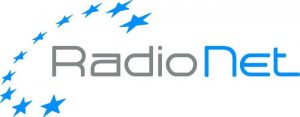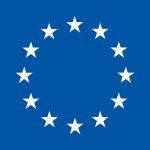IUCAF
SARAO
CRAF


This event will receive funding from the European Union's Horizon 2020 research and innovation programme under grant agreement No. 730562
[RadioNet]
CORF
National Science Foundation
RAFCAP


 Presentations archive.
Presentations archive.
(24/02/2020)
(21/02/2020)
(31/1/2020)
(31/1/2020)
Invitation letter deadline for Visa (if needed) is 31 January 2020!!
** Registration is
now open. Deadline 15 February 2020. ** 
** Hotel block bookings now open.** RationaleThe 5th IUCAF School on Spectrum Management offers a comprehensive view of both technical and regulatory issues related to radio astronomers' use of the spectrum. Spectrum management is a task of rapidly growing importance, for radio astronomy as well as for other radio services; however, it is not part of any academic curriculum; radio astronomers have to learn it by doing it. The IUCAF School in Spectrum Management will be an opportunity to profit from the experience of colleagues. The expected audience would be members of the radio astronomy and related radio engineering community, who are becoming active in this area at the local, national or international level, and regulators whose task is to protect passive services and science services.These skills have critical application to science, commerce and government. IUCAF spectrum management schools were previously held in 2002 (Green Bank, USA), 2005 (Castel San Pietro Terme, Italy), 2010 (Mitaka, Japan) and 2014 (Santiago, Chile) and were important milestones in radio astronomy's efforts to preserve access to the radio spectrum. (See links in the main IUCAF website). 
PurposeThe School will train the next generation of Scientists, Engineers and Administrators in the skills enabling discoveries via observations using the radio spectrum. Over 80 years have passed since K. G. Jansky first detected radio emission from the Galaxy, while searching for the origin of the weak static that was causing interference to communications. Since then, radio astronomy has revolutionized our view of the Universe through the discovery of quasars, pulsars, the Cosmic Microwave Background, surveys of our Galaxy in the 21-cm hydrogen line, molecular lines, and many other phenomena. The radio window was the first non-optical window in the electromagnetic spectrum explored by astronomers, and radio techniques continue to be a prime tool in the exploration of the Universe. At the same time, radio astronomy retains close ties to the world of radio communications, adopting some of its leading technologies, and sometimes giving rise to technologies of its own adopted by radio engineers for commercial applications. During the 20th century, radio astronomers enjoyed relatively easy and interference free access to large portions of the spectrum, by locating telescopes far from potential sources of man-made noise. A small number of specialists took care of regulatory issues that arose in national and international fora that rarely required attention from the broader astronomy community. This state of affairs has been changing rapidly in the 21st century, as demands on the spectrum increase due to huge increases in the demand and availability of wireless applications (mobile phones, Wireless LANs, and many others), communication satellites and marketing of new technologies, such as ultra-wide band systems, power line telecommunication systems, cognitive radio systems and dynamic spectrum access (DSA). The development and health of radio astronomy depend critically on astronomers' continued access to the radio spectrum, and this in turn demands that astronomers and particularly radio observatories pay closer attention to the technical and regulatory issues that arise in relation to managing the radio spectrum, particularly as they relate to radio astronomy. Spectrum management is critical for the future of radio astronomy. It is also interesting and even challenging, as it requires a combination of scientific motivation, technical background, legal knowledge and diplomatic skills. These skills are normally not taught as part of science curricula. The IUCAF Spectrum Management School provides an introduction to a unique combination of technology, science and international diplomacy by experts in this field. At this school, special emphasis will be given to spectrum issues related to new instruments such as the SKA and its precursors (MeerKat, ASKAP, MWA, LOFAR?, ...) Due to limited capacity at the venue, participation in the IUCAF school may be limited to 50 persons. Preference will be given to younger radio astronomers and engineers, who are or expect to be involved in spectrum management activities.
TopicsTopics to be Discussed will include:
Radio Astronomy Techniques and Observations ** A detailed program will be published closer to the date of the school.
Invited SpeakersA number of experts including from areas outside radio astronomy have been invited to present at the school. These include:
Reference Textbook
Sandra has developed a university level course on
RF Spectrum management, which has been published in a book available
through Amazon.
School Location and Venue
The school is hosted by the
South African Radio Astronomy Observatory (SARAO)
Uber is probably the best transport option for people who need to move around, and they are very accessible.
AccommodationBlock bookings have been made in a number of hotels in the Stellenbosch area and more arrangements are in progress. See the latest hotel list and details.
ElectricitySouth African electrical outlets provide 240V power at 50Hz, and use 3-pin Type M plug sockets and we recommend getting an adaptor for this socket type. For convenience, most hotels and venues will also make provision for 2-pin Type C plug sockets either in wall sockets, or via electrical extension cables. South Africa has recently adopted a new electrical plug socket standard (3-pin Type N). These are not yet in wide circulation, and we do not advise getting an adaptor for this plug socket type. Your standard 2-pin Type C plugs will, however, fit in the new 3-pin Type N socket.
RegistrationParticipation at the workshop may be limited to ~50 people due to logistics issues.Participants should register directly via the web registration form. 
Visa Requirements
A visa may be required for nationals of some countries, please check at your local South African consulate.
If a letter of invitation is needed please let the LOC know as soon as possible. 
Important Dates
Visit to the MeerKAT telescope
Chartered aircraft must be booked early. The cost per person for a full flight (8 persons) is ZAR7500 (~US$500).
It MUST be prepaid by 15 February to secure the bookings.
Please pay directly with a Credit Card via the
Secure Payment Portal.
Anyone who pays must please send through receipts to Dineo (dmahabo@ska.ac.za), so we can send back relevant
documentation.
******************
An optional visit to the MeerKAT Telescope is under consideration for school participants. The visit requires flying via
chartered
aircraft (only 8 pasengers) and it will require additional logistics and costs (TBD; ~US$300/person??). It will only be
feasible if it fits the MeerKAT schedule.
Please indicate in the registration form if you plan to participate in the MeerKAT visit and the number of
visitors in your party.
Fees, payments; Conference Dinner
A registration fee of US$100-150?? (TBD) or its equivalent in South African Rand will be charged to participants. This fee
includes
all coffee breaks and lunches during the week of the school. (Alternatives for lunches outside the venue are
limited and time consuming.) There will be an official Dinner organised for all participant at the STIAS school venue. The cost will be US$38 per person, to be paid at registration. Please indicate in your registration form if you will be attending the dinner and how many persons are in your group.
Financial assistanceLimited financial support may be available. If you need support please get in touch directly with the organisers.Local participants should coordinate with their management and SARAO. IUCAF may also offer limited support, especially for students. Please contact the organisers as soon as possible. RadioNet-H2020 travel support
Limited funding will be available from the RadioNet-H2020 budget to cover the travel and local expenses of attendees who cannot (fully) pay for their
attendance at the School.
CommitteesSCIENTIFIC ORGANIZING COMMITTEE:
LOCAL ORGANIZING COMMITTEE:
Activities outside the schoolFor other tourist activities in the Stellebosch area please see https://www.visit-stellenbosch.com/
|
|
For more information email to: Tasso Tzioumis